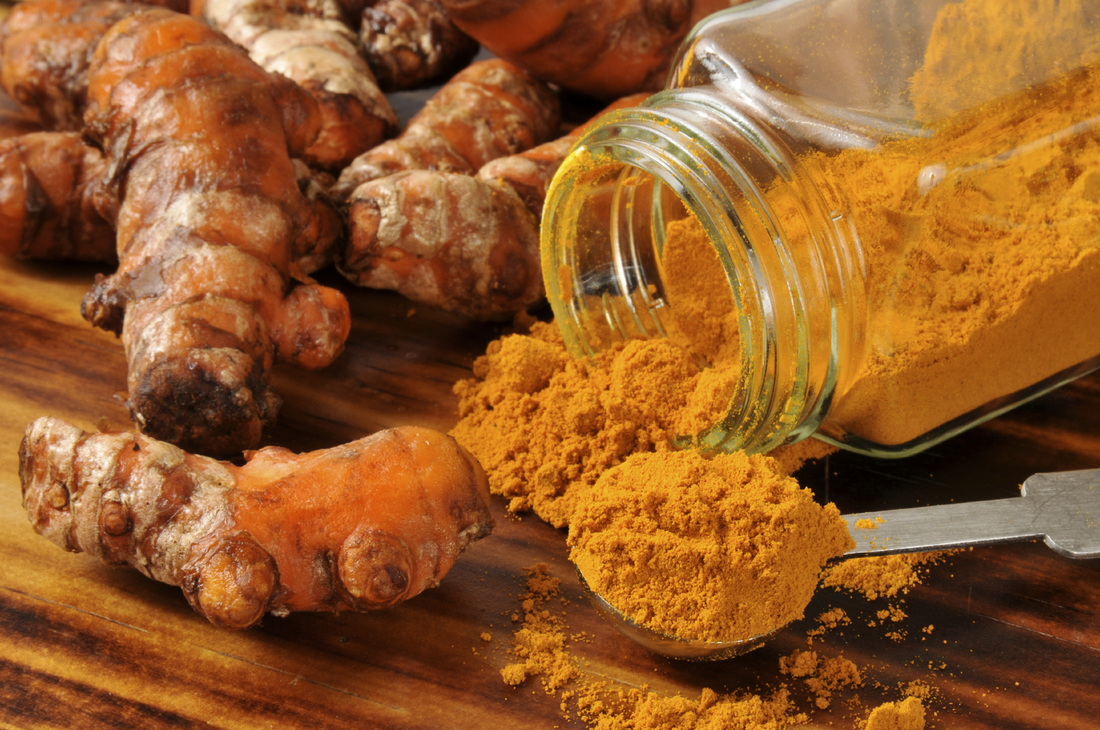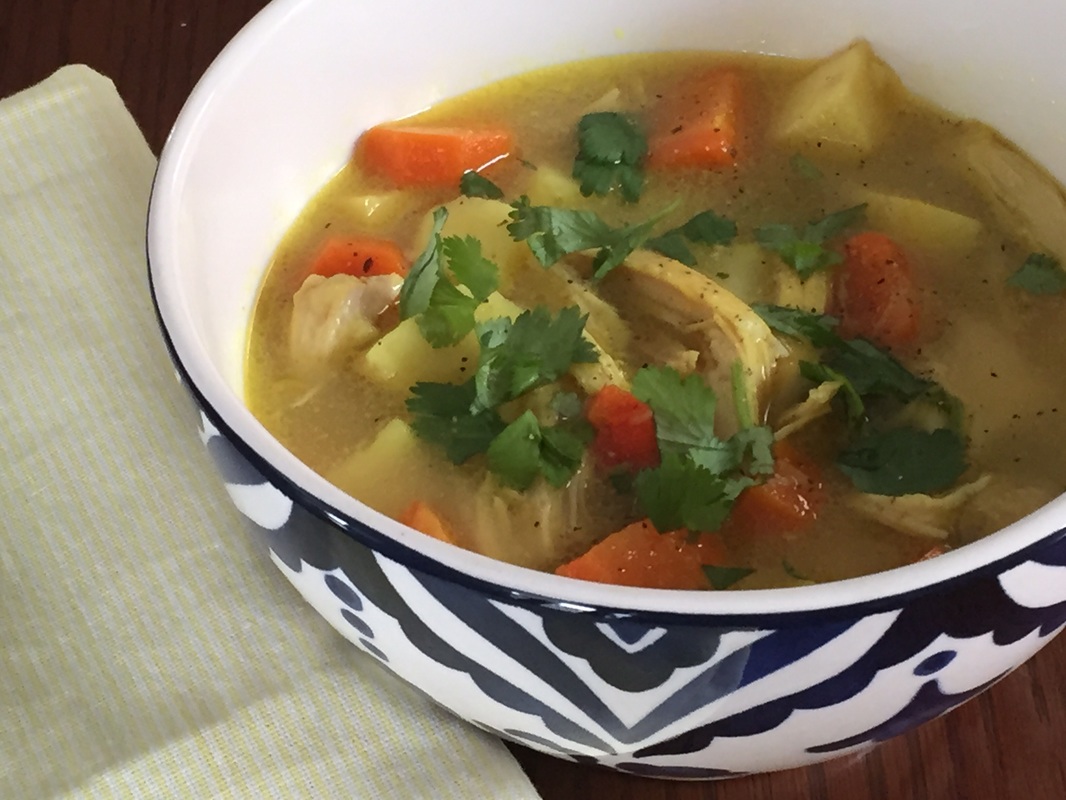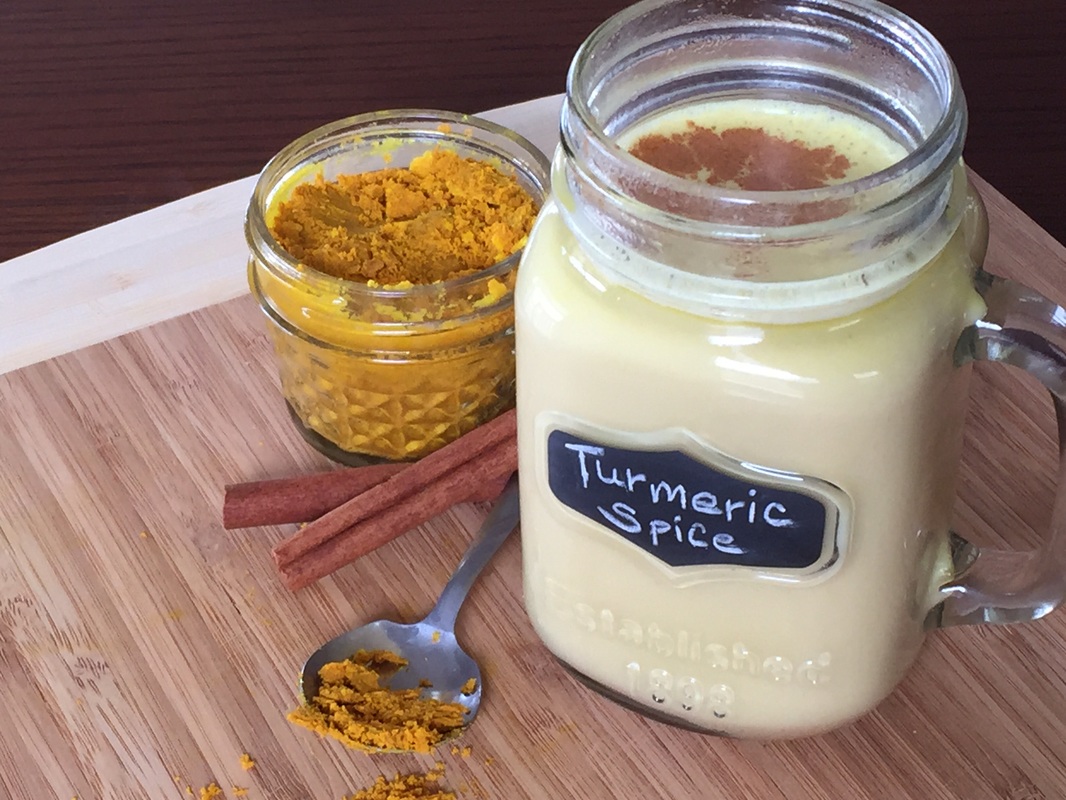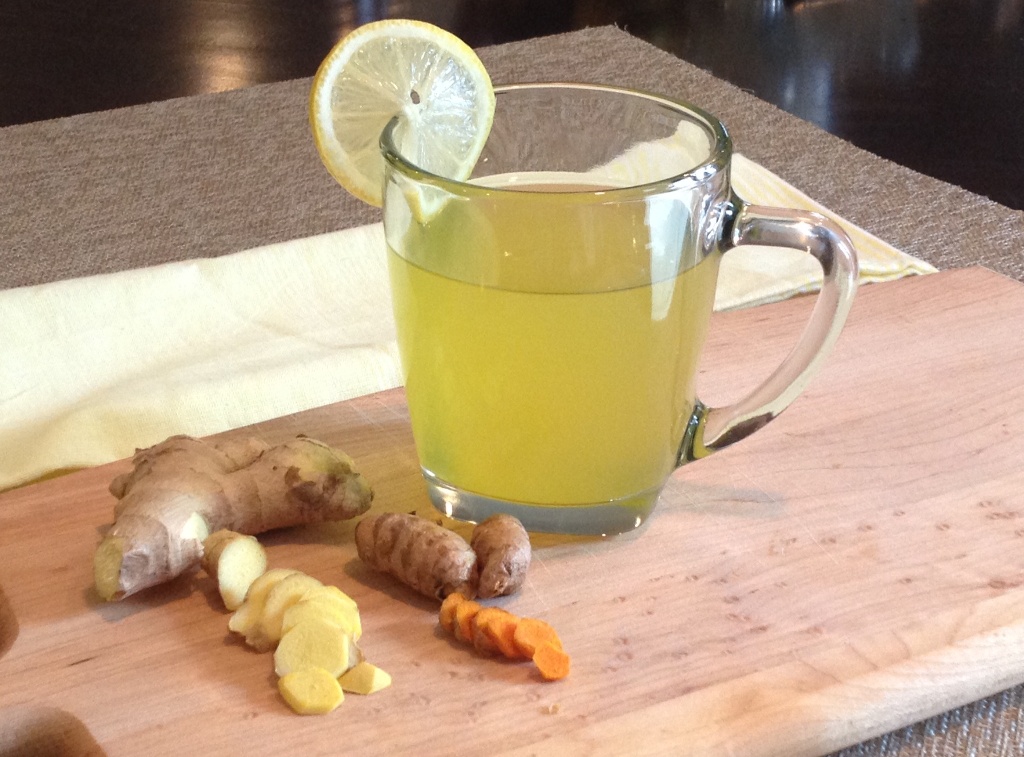|
Those of you who know me or have worked with me as your health coach know that turmeric might just be my favorite medicinal food - and for good reason! Not only have I experienced its powerful anti-inflammatory effects myself and with many of my clients, but there are several large scale, quality studies that clearly demonstrate its potent medicinal benefits. Curcumin is the active, medicinal ingredient in turmeric root, a root that is bright orange, has spicy and sweet notes and looks similar to ginger root. It has been used in Asian cultures for over 5,000 years to treat an array of inflammatory conditions. Remember that inflammation is the body's response to injury or invasion and while some inflammation is necessary to ward off pathogens and repair damaged cells, inflammation can become damaging when it continues long term and when the body inappropriately sends the immune system to attack its own tissues. These inflammatory diseases include: heart disease, IBD & IBS, rheumatoid arthritis, lupus, multiple sclerosis, cancer, diabetes, Alzheimers, fibromyalgia, and Lyme disease-just to name a few. In this week's What's That?! Wednesday post, I'm super excited to share some of turmeric's/curcumin's many health benefits that can help to prevent and/or treat some of the top inflammatory diseases of our time. I'll also give you some ideas of how to incorporate this medicinal root into your diet with ease! Health Benefits of Turmeric/Curcumin:
How to Buy, Supplement, & Cook with Turmeric: Ground turmeric can be found in all grocery stores and fresh turmeric root can be found in natural foods stores and some mainstream grocery chains. It is a root spice that looks similar to and usually located near the fresh ginger root. You can buy turmeric or curcumin supplements at most natural food and vitamin stores. Look for one that is made from organic ingredients and contains at least a small amount of black pepper to improve absorption. You can also swallow a few whole black peppercorns with your supplement to enhance the effect. Take these with a meal that includes fat and look for a supplement that is between 250 and 500 mg. Take 1-3 times daily depending on your health concerns. Turmeric can interfere with anti-coagulants and some non-steroidal anti-inflammatory drugs so always consult your physician before adding this supplement to your routine. I like Gaia Brand: Turmeric Supreme. Get lots of this golden root into your diet as well - turmeric can be added to many more dishes than just curries which are typical. Try adding it to other soups and stews, casseroles, sweet potatoes, roasted vegetables, eggs, organic chicken and teas. Jen and I use turmeric in many of our recipes, so consider our Anti-Inflammatory Meal Plans to help you boost your intake of this healing spice! Here are a few recipes for you to get started in your exploration... Enjoy! ~Billie **References:
American Cancer Society: http://www.cancer.org/treatment/treatmentsandsideeffects/complementaryandalternativemedicine/herbsvitaminsandminerals/turmeric Pub Med: http://www.ncbi.nlm.nih.gov/pubmed/?term=curcumin
0 Comments
Leave a Reply. |
Billie Shellist, FDN-P
I practice functional nutrition, an approach that allows me to look at your entire health history and help you find the "root causes" of your chronic health complaints. This cuts out the trial and error process and helps you get real symptom relief and resolution! Food is medicine and knowledge is power -I hope you enjoy my anti-inflammatory recipes which are gluten, dairy, and soy free as well as very low grain and sugar. If you'd like to heal from the root cause(s) of your chronic symptoms, try starting with a complimentary 15-minute consultation. Click here to request your free session. |





